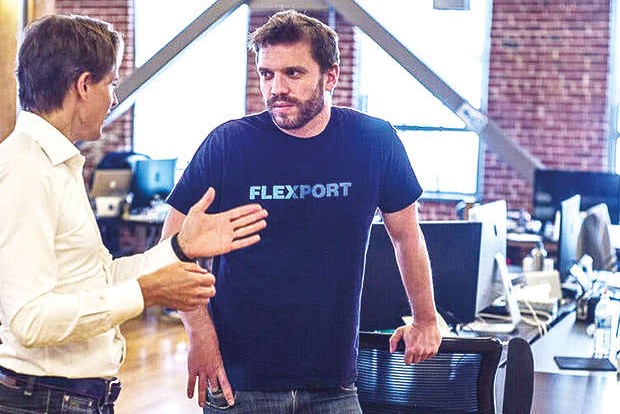Trained to “shoot, move and communicate” in normal times, the pandemic has now called on business heads to rewrite the leadership playbook. It may be an interminable mess, but at least everyone is going through it together
In normal times, there are few words that CEOs like more than “certainty.” Certainty allows them to issue sales forecasts with oracle-like conviction. Certainty instills leaders with the confidence they need to invest $500 million in a new factory or spend $20 billion buying a competitor. Certainty gives them the verve they need to preside over virtual town hall meetings with their employees and discuss race relations, furloughs, remote work and more.
But at companies large and small, new and old, public and private, 2021 was a year that played havoc with expectations. Through it all, CEOs swapped some of their favourite tropes — timelines, confidence, strategic plans — for something new: saying “I don’t know,” or even “I changed my mind.” The myriad related crises of the second year of the pandemic — including a supply chain gone haywire, a topsy-turvy labour market and constantly evolving public health guidelines — turned executives’ projections into estimations and return-to-office dates into fairy tales. Companies that had prized their in-person collaborations went remote forever, with the share of Americans fully working from home rising 27 percentage points from pre-pandemic levels, and others remade their business models to try to stay afloat. Those decisions demanded agility: In one IBM study, 60% of executives surveyed had changed their approach to management during the crisis.
“I’ve been in retail for 30 years now, and this absolutely feels like a uniquely disruptive time in modern business history,” said Kelly Caruso, CEO of Shipt, a same-day delivery service owned by Target and based in Birmingham, Alabama. “Nobody has come out of the last two years without feeling the pain of the pandemic. The level of uncertainty in business right now — that takes a toll on all of us.” Ryan Petersen, CEO of Flexport, which arranges international shipping, has spent recent months navigating the supply chain crisis. He toured backlogged ports hoping to understand why shipping containers weren’t moving. Then he hired a boat so he could observe firsthand the megatankers marooned off the coast of Los Angeles.
Now, as a year marked by unceasing disruption comes to a close, Petersen is confronting a distinctly of-the-moment disruption: On the Tuesday before Christmas, he tested positive for the coronavirus. “I wasn’t sure if I was sick or if I ate too many Cheerios last night,” he said, adding that his wife, who tested positive a day earlier, usually looks after his diet. “My wife is really sick, and I just gorged myself.” Petersen said that his symptoms were mild and that he expected to return to work in a matter of days. But his brush with COVID-19 — nearly two full years into the pandemic — highlights the unrelenting chaos facing companies, their workers and their leaders. “It’s been several years of uncertainty,” Petersen said, adding that because of the Omicron variant, Flexport had delayed its return-to-office plans again.
“We try to embrace it.” John Waldmann, CEO of workforce management platform Homebase, learned early in his career the primacy of plans, first in management consulting and then in private equity. As someone who had never built software but decided to found a software company, he practiced making promises and then figuring out how he could keep them.
When COVID-19 hit, that approach collapsed. Homebase temporarily lost 60% of its customers, which were mostly small businesses and hourly workers. The company laid off 30% of its staff. Waldmann sat in meetings with his board of directors presenting wildly varying forecasts of how many clients he could ultimately lose or when the economic recovery might begin. “We threw out any plans we had, any budget, any road map,” Waldmann said, and with those went the sense of rigid confidence that had previously been at the core of his leadership. “It made it easy to say, ‘Let’s not kid ourselves.’ We have no idea when this is going to end.”
‘Positive cases in every office’
There’s nothing quite like falling ill to bring home the immediacy of the crisis, and Petersen, of Flexport, wasn’t the only CEO in isolation. Gary Kelly, CEO of Southwest Airlines, tested positive this month, just days after testifying before Congress that masks “don’t add much” to the quality of airplane cabin air. Verizon CEO Hans Vestberg said on a company webcast that he had tested positive for COVID-19 this month, adding that his symptoms were mild and encouraging employees to get vaccinated.
And Rich Handler, CEO of investment bank Jefferies, shared this month that he had tested positive for the coronavirus and was isolating, days after the bank sent its employees to work from home and mandated booster shots for all those returning to the office by late January. “The one thing that keeps growing (besides your beard) when you are in an isolated lockdown is a very long list of fun things you want to plan to do once you and the world are healed,” Handler wrote on Instagram. “The trick will have to be that list remains a vital priority once all of the uncertainties pass.”
Chuck Robbins, CEO of Cisco, was supposed to be in Davos, Switzerland, next month for the annual meeting of the World Economic Forum. But as omicron cases rose last week, he emailed Klaus Schwab, head of the forum, and told him that Cisco would not be attending. Two days later, Schwab postponed the gathering, which was set to draw thousands of politicians and executives to the Alps for a week of canapés, cocktails and speeches.
“We’ve had ongoing challenging situations since I became CEO, from tariffs, to the ongoing political situation in the U.S., to the pandemic, the lockdown, the social justice issues, and now the pandemic that won’t seem to end, and the supply chain issues,” Robbins said. “Just when you think you’ve got it figured out, you get another curveball thrown at you.”
Some are finding humour in the tumult, whether in broken-up Zoom calls or meetings interrupted by hungry pets. It may be an interminable mess, but at least everyone is going through it together. Lisa Osborne Ross, U.S. CEO of public relations firm Edelman, said she had gotten an outpouring of sympathetic notes from her staff after she led one of the rockiest meetings of her career this month. She tried to display an end-of-year memory video, which somehow ended up visible only to her. The audio cut out. Murphy’s Law prevailed. Everything that could go wrong went wrong — and her employees loved it. “I was like, ‘Am I being punked?’” she recalled. “But people said it was the best town hall ever because it was human and funny.”























